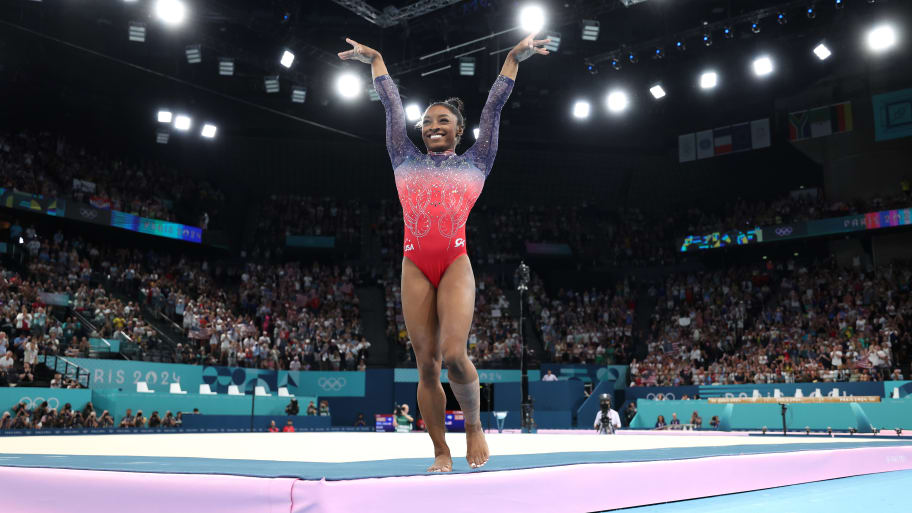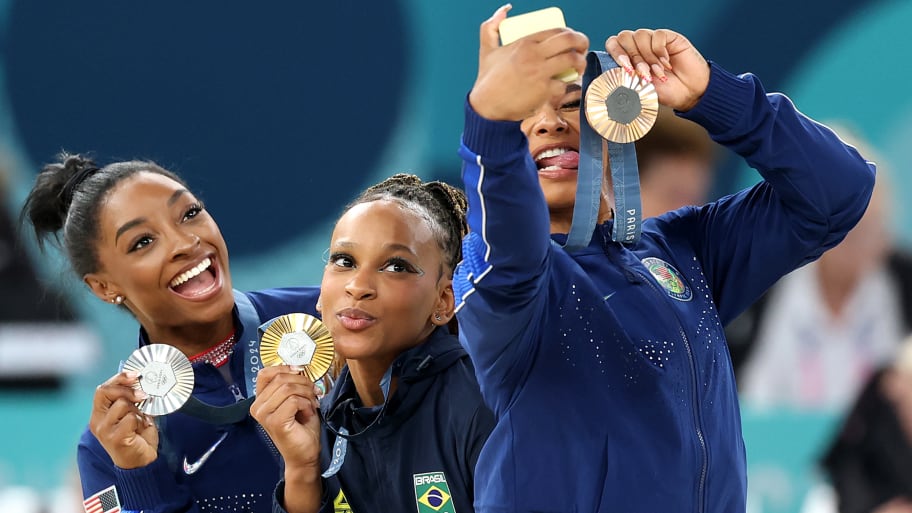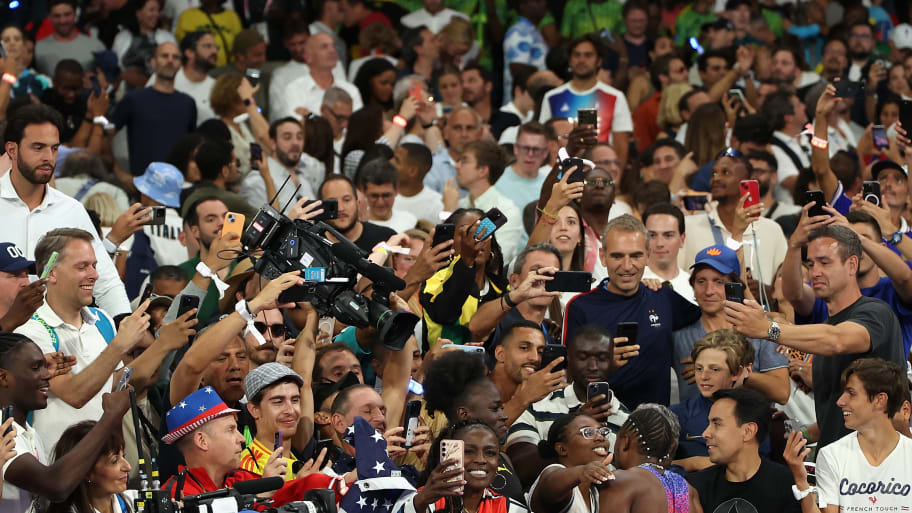
PARIS — Simone Biles will leave these Olympics with four medals and a full smile, an improvement since Tokyo of three medals and a whole lot of tears. Noah Lyles has already won one gold medal, in the race he was least likely to win, and could leave with three. If you are wondering whom to credit for the extraordinary performances of these extraordinary humans, the answer, obviously, is you.
Well, maybe not you, specifically. But you, the sports fan. If the last two Olympic cycles have taught us anything, it is that sporting events are theater performances, not lab experiments. Audiences don’t just watch competitions. They are part of them.
Athletes say they want to block out the noise, but when they compete, they need it. Biles’s mental health crisis and case of the twisties in Tokyo began when she was alone with her thoughts. On the track, the extroverted Lyles inexplicably pulled up in his 200-meter semifinal, causing him to lose out on a choice lane in the final, and almost a spot in it at all. He finished with a bronze medal in his signature event and burst into tears in the mixed zone afterward.
There is no way to know what Biles and Lyles would have done in arenas full of spectators in Tokyo. But we have enough evidence now to make a highly educated guess. After Biles fell off the beam Monday, costing herself a chance at the podium, she said even these Olympics were too quiet for her. The fans were loud beforehand and loud afterward but tennis-crowd silent during routines.

“Beam final is always the most stressful, but usually we have music or background noise or whatever that may be,” Biles said. “Honestly, we do better in environments where there is more noise because it feels more like practice. We asked several times if we can have some music. Not sure what happened there. Not our favorite. None of us liked it … yeah. It was an odd beam final.”
She was not really complaining—about that or anything else. One of the beautiful parts of Biles’s journey is that she finally seems to have a healthy relationship with her own fame. She appreciates the attention but won’t let strangers define success for her. She still notices the haters but she seems to find them amusing. She realizes the Olympics are stressful enough without worrying what everybody else thinks.
Biles won three golds and a silver medal in Paris and appreciates them all—even the silver, which came after a shaky (for her) performance in the floor exercise, which she was favored to win.
“You just never know with gymnastics,” Biles said. “I’m not very upset or anything. I’m actually very happy and proud—and even more excited that it’s over, the stress of it.”
After Brazilian Rebeca Andrade won the gold medal in the floor exercise, Biles was thrilled for her.
“I can’t say enough good things about her,” Biles said. “I love Rebeca. She’s incredible. She’s so amazing. She’s Queen.”

A queen does not need a king, but Lyles might volunteer for the role anyway. He is a shameless self-promoter, which is not everybody’s taste, but if you pay close enough attention, what seems like egomania is actually a thirst for human connection. After the men’s 100-meter dash ended in a photo finish, a self-absorbed athlete would have kept his distance from everybody else, lest he feel the shame of finishing second. But as Lyles waited for the results, he told Jamaican Kishane Thompson he thought Thompson had won.
Lyles can handle losing. But isolation rattles him. He was never himself in Tokyo, and when he cried after the 200 there, he said he was thinking of his brother, Josephus, a fellow sprinter who did not make the team. Families were not allowed to travel to Tokyo, and Lyles missed his desperately.
Lyles is in a better place now—mentally and literally, at these Games. With Biles done performing and the swimming competition is Paris complete, Lyles will be the dominant American story for the rest of the Olympics. After Lyles found out that he, not Thompson, won the 100, somebody asked him about the 200. He started to say he would win the race, then said “I’ll leave it there,” then decided leaving it there was not a very Noah Lyles thing to do. He basically guaranteed he would win the race—and he should win it. All eyes will be on him, which is exactly how he likes it.
This article was originally published on www.si.com as The Paris Olympics Prove That Fans Are an Essential Part of Sports.







